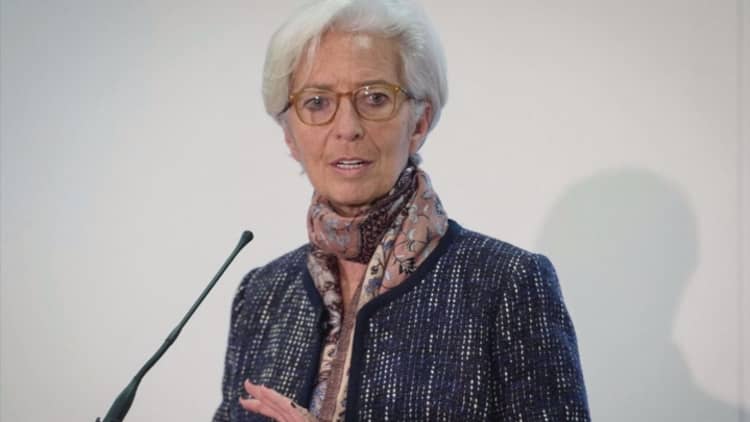
Middle East countries hit hard by the slump in the price of oil will have to raise taxes in order to recover and prosper, the head of the International Monetary Fund (IMF) believes.
In a preview of a speech to be delivered at the Arab Fiscal Forum on Monday, IMF Managing Director Christine Lagarde will say that that successful 21st century economies had to be able to both generate "robust government revenue" and "higher and more reliable revenue."
Due to speak in oil-rich emirate Abu Dhabi, Lagarde's speech will focus on those Middle Eastern oil exporting countries that are seeing widening budget deficits as a result of the sharp plunge in oil prices since mid-2014.
Lagarde will state on Monday that while "oil-exporting countries are adapting to a new reality of low commodity prices" and that "revenue mobilization" was needed around the world, but especially in the Middle East and North Africa, regions which have relied on oil for government revenues.
"Not only have oil prices fallen by around two-thirds from their most recent peak, but supply and demand-side factors suggest that they are likely to stay low for an extended period. The size and likely persistence of this external shock means that all oil exporters will have to adjust by reducing spending and increasing revenue."
She noted that in 2015, oil exporters in the MENA region lost more than $340 billion in oil revenue from their budgets, amounting to 20 percent of their combined gross domestic product.
"These economies need to strengthen their fiscal frameworks and reengineer their tax systems—by reducing their heavy reliance on oil revenues and by boosting non-hydrocarbon sources of revenues," she will state. "This would help bolster growth and job creation and, at the same time, help to maintain debt sustainability and strengthen resilience. It also provides a unique opportunity to design tax systems that emphasize fairness, simplicity, and efficiency."
Silver linings?
Oil-rich nations are scrambling to reduce their dependence on oil revenues and analysts do not see the situation improving for oil exporters. Last week, Moody's ratings agency forecast that Abu Dhabi's fiscal deficit will widen significantly in 2016 to 14 percent of GDP, driven by major falls in oil and natural gas revenues.
Abu Dhabi's economy relies on a breakeven oil price of $60 per barrel, which Moody's said was "low compared to most Gulf Cooperation Council (GCC) peers." The breakeven price is a far cry from the current price of $33.52 a barrel for benchmark Brent crude.
Middle Eastern governments have repeatedly said they are looking to diversify their economies away from the oil industry. In addition, six Gulf oil-producing countries (Saudi Arabia, Kuwait, Bahrain, Oman, Qatar and the United Arab Emirates) are planning on introducing a sales tax for the first time and countries like the UAE have removed long-standing fuel subsidies. Still, the aforementioned countries do not have a system of personal income tax, something that Lagarde said was needed.
The path towards income taxes could be eased by the introduction of a sales tax, a greater emphasis on corporate taxes and investing in a tax administration that could "eventually allow for the introduction of personal income taxes," Lagarde will say in her speech.
Lagarde noted that the fiscal adjustment needed varied from country to country but, "thanks to their prudent polices, most members of the Gulf Cooperation Council (GCC) are now in a position where they can pace their adjustment over several years and thus limit the impact on growth."
"It is also worth remembering that GCC economies have made large fiscal adjustments in the past—and I am confident that they can do it again," she will note.




